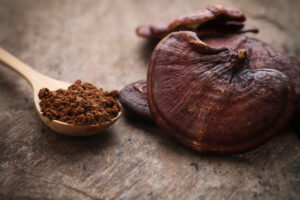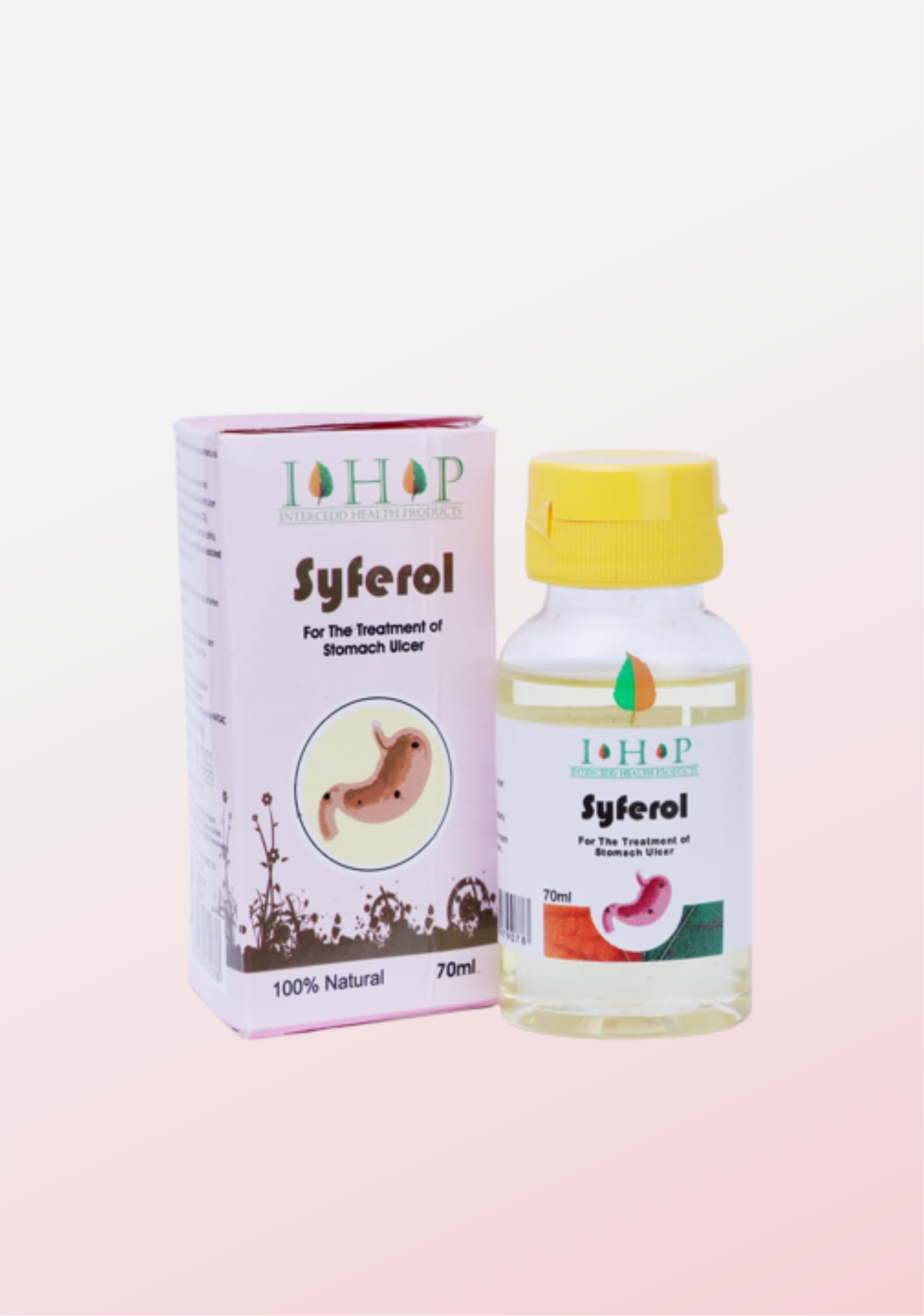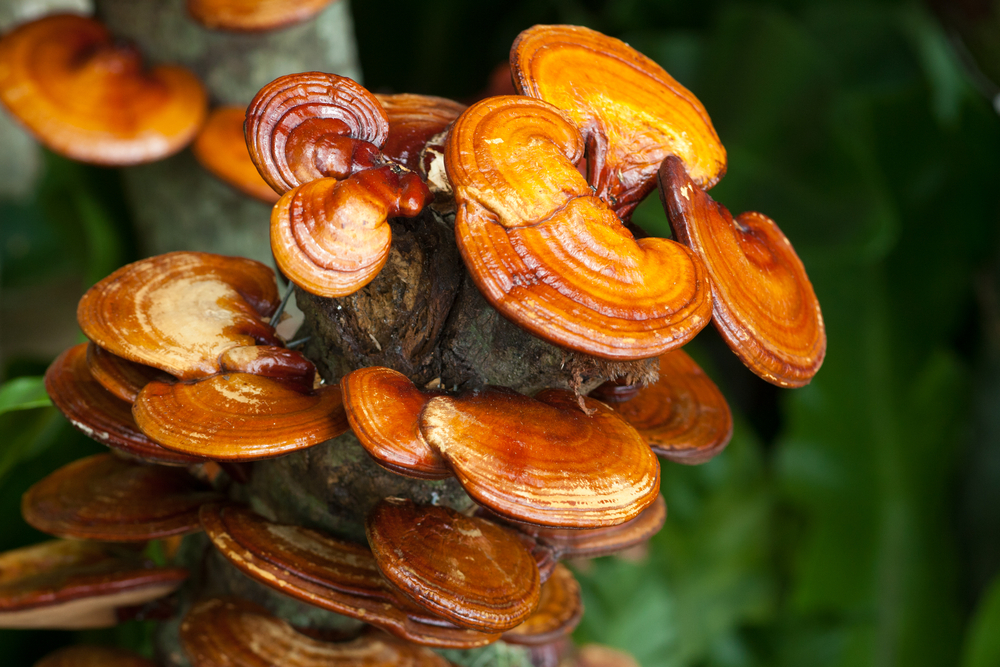Benefits of Ganoderma with Café | Best Blends for Your Wellness
Ganoderma, also known as the “King of Herbs,” has a rich history deeply rooted in traditional Chinese medicine. For centuries, it has been revered for its purported health benefits, including boosting the immune system, improving vitality, and promoting longevity. Now, Ganoderma is making waves in a modern context, particularly in the form of Ganoderma-infused coffee.
The fusion of Ganoderma with coffee has sparked a global trend, captivating the interest of health-conscious consumers seeking alternative ways to incorporate wellness into their daily routines. This unique blend combines the rich, aromatic flavor of coffee with the potent properties of Ganoderma, creating a beverage that not only tantalizes the taste buds but also offers potential health perks.
In this article, we delve into the burgeoning phenomenon of Ganoderma-infused coffee, exploring its origins, the science behind its purported benefits, and its rising popularity among consumers. We’ll examine the cultural and historical significance of Ganoderma, its traditional uses, and how it has evolved into a sought-after ingredient in the coffee industry. Furthermore, we’ll provide insights into the potential advantages and considerations of incorporating Ganoderma Con Cafe into your daily routine. Join us as we uncover the fascinating intersection of ancient wisdom and modern trends in the world of coffee culture.
What is Ganoderma?
Ganoderma, commonly referred to as Lingzhi in China, is a genus of fungi known for its medicinal properties and cultural significance. It belongs to the Polyporaceae family and is characterized by its distinctive woody texture, shiny appearance, and reddish-brown color. The name “Ganoderma” is derived from the Greek words “ganos” (brightness) and “derma” (skin), highlighting its shiny exterior.
In traditional Chinese medicine (TCM), Ganoderma has been revered for millennia for its purported health benefits. It is believed to possess adaptogenic properties, meaning it helps the body adapt to stress and maintain homeostasis. Ganoderma has been historically used to boost the immune system, improve vitality, and promote longevity.
There are several species of Ganoderma, each with its unique characteristics and potential health benefits. The most commonly utilized species include Ganoderma lucidum, Ganoderma sinense, and Ganoderma tsugae. Ganoderma lucidum, also known as Reishi, is the most extensively studied and revered species in TCM.
Traditional uses of Ganoderma in Chinese medicine encompass a wide range of ailments, including fatigue, respiratory disorders, digestive issues, and even cancer. It is often consumed in the form of teas, extracts, or powdered supplements. Additionally, Ganoderma is sometimes incorporated into soups, broths, and other culinary preparations to enhance both flavor and health benefits.
The Science Behind Ganoderma
The science behind Ganoderma revolves around its active compounds, which contribute to its purported health benefits. One of the key components of Ganoderma is triterpenoids, which have been shown to possess anti-inflammatory, antioxidant, and immune-boosting properties. These triterpenoids, including ganoderic acids, help modulate the immune system’s response and combat oxidative stress in the body.
Another important group of compounds found in Ganoderma is polysaccharides, which are complex carbohydrates known for their immune-enhancing effects. Polysaccharides in Ganoderma have been studied for their potential to stimulate the production of immune cells and enhance the body’s defense mechanisms against infections and diseases.
Research on Ganoderma has identified several potential health benefits supported by scientific evidence. These include:
1. Immune modulation: Ganoderma has been shown to enhance immune function by increasing the activity of immune cells such as macrophages, T cells, and natural killer cells. This immune-boosting effect may help the body fend off infections and illnesses more effectively.
2. Antioxidant activity: The antioxidant compounds in Ganoderma help neutralize harmful free radicals in the body, thereby reducing oxidative stress and protecting cells from damage. This may contribute to its potential anti-aging and disease-preventive effects.
3. Anti-inflammatory properties: Ganoderma contains bioactive compounds that inhibit inflammation pathways in the body. By reducing inflammation, Ganoderma may help alleviate symptoms associated with inflammatory conditions such as arthritis, asthma, and inflammatory bowel disease.
4. Anticancer effects: Some studies suggest that Ganoderma extracts may have antitumor properties and could potentially inhibit the growth and spread of cancer cells. These anticancer effects are attributed to the presence of bioactive compounds like triterpenoids and polysaccharides.
SEE ALSO: The Perfect Blend: Ganoderma Lucidum and Coffea Arabica – A Health Marvel
Ganoderma-Infused Coffee: How It’s Made
Ganoderma-infused coffee combines the rich flavor of coffee beans with the purported health benefits of Ganoderma, creating a unique and enticing beverage. The process begins with the extraction of Ganoderma compounds from the fungus. Typically, this involves drying and grinding the Ganoderma mushrooms into a fine powder to maximize surface area for extraction. The powdered Ganoderma is then subjected to various extraction methods, such as hot water extraction or alcohol extraction, to isolate its bioactive compounds, including triterpenoids and polysaccharides.
Once the Ganoderma extract is obtained, it is carefully blended with coffee beans to create Ganoderma-infused coffee. This blending process requires precision to ensure the optimal balance of flavors and health benefits. Depending on the desired potency and flavor profile, different ratios of Ganoderma extract to coffee beans may be used. The blend is thoroughly mixed to ensure uniform distribution of Ganoderma throughout the coffee beans.
After blending, the Ganoderma-infused coffee beans undergo roasting, a crucial step that imparts flavor and aroma to the final product. Roasting temperatures and duration are carefully controlled to preserve the delicate compounds in both the coffee beans and Ganoderma extract. The result is a flavorful and aromatic coffee with added potential health benefits from the Ganoderma infusion.
Health Benefits of Ganoderma in Coffee
Ganoderma-infused coffee offers a myriad of potential health benefits, making it a popular choice among health-conscious consumers.

A. Boosting the immune system: Ganoderma contains bioactive compounds such as polysaccharides and triterpenoids that have been shown to enhance immune function. Regular consumption of Ganoderma-infused coffee may help strengthen the body’s natural defenses against infections and diseases.
B. Enhancing energy and focus: The combination of caffeine from coffee and the adaptogenic properties of Ganoderma can provide a sustained energy boost without the jittery side effects often associated with caffeine consumption. This synergy may also promote mental clarity and focus, making Ganoderma-infused coffee an ideal choice for enhancing productivity and concentration.
C. Supporting liver health: Ganoderma has been traditionally used in Chinese medicine to support liver function and promote detoxification. The antioxidants and anti-inflammatory compounds found in Ganoderma may help protect the liver from damage caused by oxidative stress and toxins, potentially reducing the risk of liver diseases.
D. Antioxidant properties: Ganoderma is rich in antioxidants, which help neutralize harmful free radicals in the body. By reducing oxidative stress, Ganoderma-infused coffee may help prevent cellular damage, support healthy aging, and reduce the risk of chronic diseases such as heart disease and cancer.
E. Balancing cholesterol levels: Some studies suggest that Ganoderma may have cholesterol-lowering effects, particularly on LDL cholesterol (the “bad” cholesterol) and triglycerides. By promoting healthy cholesterol levels, Ganoderma-infused coffee may help reduce the risk of cardiovascular diseases and improve overall heart health.
Ganoderma with Café Coffee and Weight Management
Ganoderma with Café coffee has garnered attention for its potential role in weight management due to its appetite suppression effects and metabolism-boosting properties. Firstly, Ganoderma contains bioactive compounds like polysaccharides and triterpenoids, which may help reduce appetite by regulating hunger hormones and promoting feelings of satiety. By curbing cravings and reducing overall calorie intake, Ganoderma with Café coffee can support weight loss efforts.
Moreover, Ganoderma is believed to enhance metabolism, which is crucial for burning calories and maintaining a healthy weight. The bioactive compounds in Ganoderma may stimulate metabolic processes, including fat metabolism, leading to increased energy expenditure. This metabolic boost can help individuals burn more calories throughout the day, even during periods of rest.
Incorporating Ganoderma coffee into a weight loss regimen can be a convenient and enjoyable way to support dietary efforts. Substituting regular coffee with Ganoderma-infused coffee can provide added benefits without sacrificing taste or satisfaction. Additionally, drinking Ganoderma coffee before meals may help control portion sizes and prevent overeating.
To optimize its weight management benefits, individuals can complement Ganoderma coffee consumption with a balanced diet and regular exercise routine. Choosing nutrient-dense foods, staying hydrated, and engaging in physical activity can enhance the effectiveness of Ganoderma coffee in promoting weight loss and overall well-being.
What Happens If I Take Too Much Ganoderma in Coffee?
While Ganoderma-infused coffee offers numerous potential health benefits when consumed in moderation, taking too much Ganoderma may lead to adverse effects. Excessive intake of Ganoderma can potentially overwhelm the body’s natural processes and cause various health issues.
One concern is the risk of gastrointestinal discomfort, including symptoms like nausea, vomiting, diarrhea, and abdominal pain. Ganoderma contains bioactive compounds that may irritate the digestive tract, especially when consumed in large quantities.
Furthermore, excessive consumption of Ganoderma with Café coffee may lead to allergic reactions in sensitive individuals. Allergies to Ganoderma are rare but can occur, resulting in symptoms such as skin rashes, itching, swelling, and difficulty breathing. Those with known allergies to mushrooms or fungal spores should exercise caution when consuming Ganoderma products.
Another potential consequence of excessive Ganoderma intake is liver toxicity. While Ganoderma is generally regarded as safe, consuming high doses for extended periods may strain the liver’s detoxification processes, leading to liver damage in susceptible individuals.
Additionally, the caffeine content in Ganoderma coffee may contribute to caffeine-related side effects such as insomnia, restlessness, increased heart rate, and anxiety, particularly in individuals sensitive to caffeine or those consuming large amounts of coffee.
To avoid potential adverse effects, it’s essential to consume Ganoderma-infused coffee in moderation and consult with a healthcare professional, especially if you have underlying health conditions or are taking medications. Following recommended dosage guidelines and listening to your body’s response can help prevent negative outcomes and ensure a safe and enjoyable experience with Ganoderma coffee.
SEE ALSO: Unlocking the Power of Combretum micranthum: A Glimpse into Hepa Vital Tea
What Are the Side Effects of Ganoderma in Coffee?
While Ganoderma-infused coffee is generally considered safe for most people when consumed in moderation, it may still cause side effects in some individuals. These side effects can vary depending on factors such as dosage, individual sensitivity, and pre-existing health conditions.
One potential side effect of Ganoderma in coffee is gastrointestinal discomfort. Some people may experience digestive issues such as nausea, diarrhea, bloating, or abdominal pain after consuming Ganoderma-infused coffee, particularly if they have a sensitive stomach or consume large quantities.
Another possible side effect is allergic reactions. Although rare, some individuals may be allergic to Ganoderma or its components, leading to symptoms such as skin rash, itching, swelling, or difficulty breathing. People with known allergies to mushrooms or fungal spores should exercise caution when consuming Ganoderma products.
Additionally, the caffeine content in Ganoderma coffee may contribute to caffeine-related side effects in some individuals. These may include insomnia, jitteriness, increased heart rate, anxiety, or headaches, especially if consumed in excessive amounts or by those sensitive to caffeine.
Furthermore, Ganoderma may interact with certain medications or medical conditions. People taking blood thinners, anticoagulants, or immunosuppressants should consult their healthcare provider before consuming Ganoderma coffee, as it may interfere with the effectiveness of these medications or exacerbate underlying health issues.
To minimize the risk of side effects, it’s essential to consume Ganoderma-infused coffee in moderation and pay attention to how your body responds. If you experience any adverse reactions, discontinue use and consult with a healthcare professional for further guidance.
How to Store Ganoderma in Coffee
Proper storage of Ganoderma-infused coffee is essential to maintain its freshness and potency over time. Here are some guidelines on how to store Ganoderma coffee effectively:
1. Store in an airtight container: Transfer the Ganoderma coffee into an airtight container to prevent exposure to air, moisture, and light, which can degrade its quality and flavor. Choose a container made of glass or opaque material to block out light and maintain optimal freshness.
2. Keep in a cool, dry place: Store the airtight container of Ganoderma coffee in a cool, dry location away from direct sunlight, heat sources, and humidity. Avoid storing it near the stove, oven, or other appliances that generate heat, as excessive heat can accelerate the deterioration of the coffee.
3. Avoid exposure to moisture: Moisture can cause Ganoderma coffee to become damp and clump together, leading to spoilage and loss of flavor. Ensure that the storage container is tightly sealed and free from moisture buildup. If necessary, you can include a desiccant packet or silica gel sachet to absorb excess moisture.
4. Use a dark container: If storing Ganoderma coffee for an extended period, consider using a dark-colored container or wrapping it in aluminum foil to further protect it from light exposure, which can degrade its active compounds and flavor over time.
5. Check for signs of spoilage: Periodically inspect the Ganoderma coffee for any signs of spoilage, such as mold, off odors, or changes in color or texture. If you notice any abnormalities, discard the coffee immediately to prevent any adverse health effects.
FAQ:
A. What is ganoderma and where does it come from?
Ganoderma, also known as Lingzhi in Chinese, is a type of mushroom belonging to the genus Ganoderma. It has been used for centuries in traditional Chinese medicine for its potential health benefits. Ganoderma typically grows on logs or tree stumps in various parts of the world, including Asia, North America, and Europe.
B. How does Ganoderma with Café coffee taste?
The taste of Ganoderma with Café coffee can vary depending on the specific blend and preparation method. Generally, ganoderma-infused coffee has a rich, bold flavor similar to traditional coffee, with subtle earthy and herbal undertones from the ganoderma extract. Some people may describe it as slightly bitter or nutty, while others find it smoother and more aromatic compared to regular coffee.
C. Are there any potential side effects of Ganoderma with Café coffee?
While Ganoderma with Café coffee is considered safe for most people when consumed in moderation, there may be potential side effects for some individuals. These side effects can include gastrointestinal discomfort, allergic reactions, caffeine-related effects such as insomnia or jitteriness, and interactions with certain medications or medical conditions. It’s essential to consult with a healthcare professional before incorporating ganoderma coffee into your routine, especially if you have any underlying health concerns.
D. Can Ganoderma coffee help with sleep?
There is limited scientific evidence to support the claim that ganoderma coffee can help with sleep. While ganoderma may possess calming and stress-relieving properties, individual responses to ganoderma coffee may vary. Some people may find that the caffeine content in coffee can interfere with sleep, particularly if consumed close to bedtime.
Conclusion
Ganoderma with Café coffee offers a unique blend of flavor and potential health benefits that make it a compelling choice for coffee enthusiasts and wellness seekers alike. Throughout this article, we’ve explored the numerous advantages of Ganoderma-infused coffee, from its immune-boosting and antioxidant properties to its potential support for weight management and liver health. By incorporating Ganoderma coffee into your daily routine, you may experience increased energy, enhanced focus, and a sense of overall well-being.
If you haven’t already tried Ganoderma coffee, now is the perfect time to explore its potential benefits for yourself. Whether you’re looking to elevate your morning ritual or seeking natural ways to support your health goals, Ganoderma coffee offers a convenient and enjoyable option that blends the rich flavor of coffee with the potential therapeutic effects of Ganoderma.
Reference:
https://www.verywellhealth.com/benefits-of-ganoderma-coffee-89454







